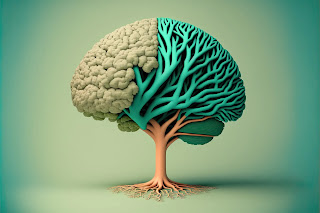Self-regulation helps us focus on a task, achieve long-term goals, develop healthy habits, and get along well with others. A person with good emotional self-regulation is able to control their emotions. They resist impulsive feelings. According to psychologists, there are two main forms of this self-regulation. That is, behavioral-self-regulation and emotional-self-regulation.
Ø SELF MOTIVATION
Self-motivation encourages us to continue toward a goal even when it feels challenging. That is, how we find our ability to do what needs to be done without being influenced by other people or circumstances. There are mainly two types of motivators in our life. That is, intrinsic motivation and extrinsic motivation. Intrinsic motivators provide the motivation to do the things we want to do. Extrinsic motivation or extrinsic motivators are about rewards or punishments. Accordingly, self-motivation depends on our own desires and personal rewards.
Ø SOCIAL
AWARENESS
Another
skill to develop emotional intelligence is social awareness. It means that we
have awareness and understanding of the world around us. Social awareness, in
relation to emotional intelligence, is defined as our ability to accurately
understand and empathize with other people's emotions.
Ø SOCIAL
SKILLS
Social skills are used to communicate with others daily in a variety of ways including verbal, nonverbal, written, and visual. Social skills are also referred to as “interpersonal” or “soft skills.” Verbal skills involve the spoken language, while nonverbal communication includes body language, facial expressions, and eye contact. Any time we interact with another person, we’re using social skills in some way.
Self-awareness
is the ability to observe our own thoughts and feelings. Anyone should actively
seek to understand themselves. Because only when one understands where one is
lacking, can he or she focus his or her efforts on what needs to be improved. A
number of factors are important to this self-awareness.
o
Being very deeply aware of our emotions.
o
The ability to distinguish our emotions
from the emotions of others.
o
Awareness of our beliefs and desires.
o
What are our strengths? What are our
weaknesses? Identifying
o
Ability to communicate better.
o
Improving interpersonal relationships.




.jpg)



